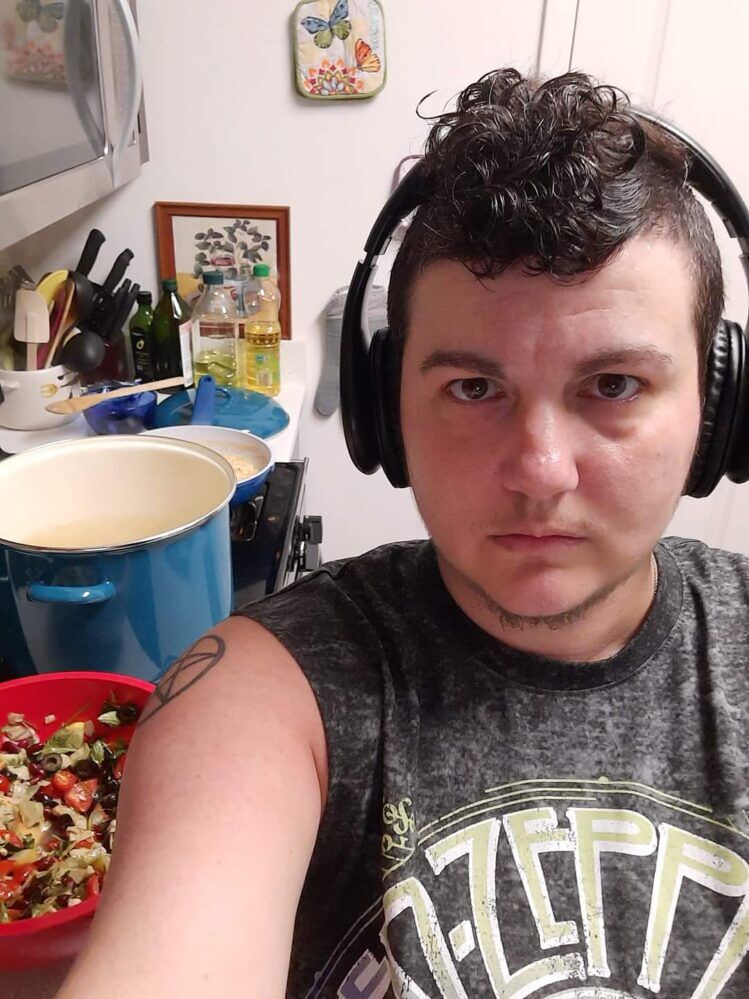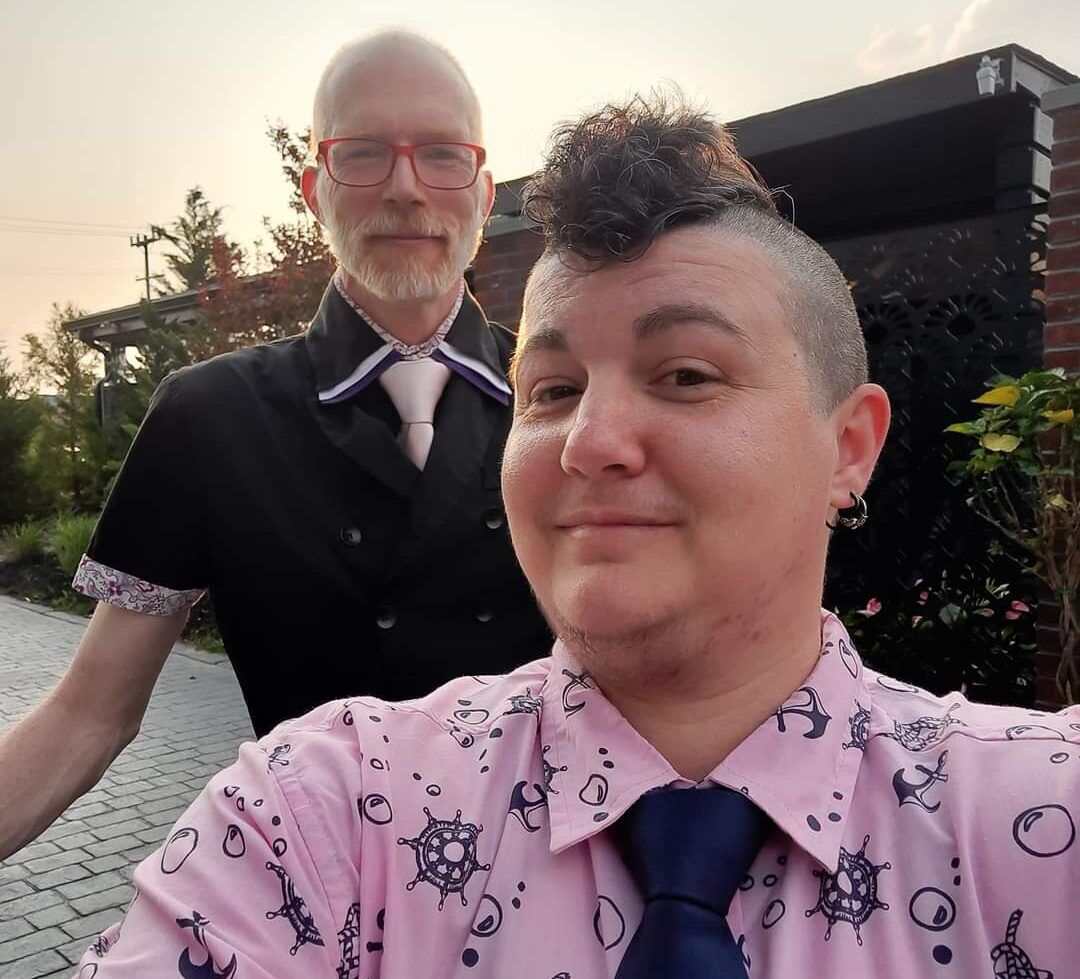Go vote for LGBTQ Nation’s 2023 Heroes!
Among dozens of LGBTQ Nation’s Hometown Heroes over the years, Viktor Veltstra stands out as a unique example of caring for those who can’t help themselves: unidentified victims lost to violence, particularly trans people.
Veltstra, who lives near the Jersey Shore with his husband and two teenage kids, became an expert in the field of forensic genetic genealogy for queer people after his family asked for help locating an uncle who had gone missing several years ago.
It turns out the man had died around the time he disappeared, but his death hadn’t been properly recorded and shared with loved ones, a situation Veltstra, who identifies as trans, bi-plus, and queer, has encountered hundreds of times with trans and other marginalized queer people reported missing or disappeared without a trace, including Native and First Nations people, Black and other people of color, and sex workers.
Veltstra says trans and gender-variant people are disproportionately targeted in violent crimes, are more likely to be estranged from their families, and often end up vulnerable without adequate support. There are likely hundreds of so-called “Trans Does” filed in cold case files as either “Jane” or “John,” which may not match the gender they identified with or the description anyone looking for them may have given.
Never Miss a Beat
Subscribe to our newsletter to stay ahead of the latest LGBTQ+ political news and insights.
Veltstra is on a mission to give those victims who have slipped through the cracks the respect they deserve and provide closure for loved ones.
And he doesn’t get paid for it.
“My spouse is the breadwinner, absolutely,” says Veltstra, who calls his tiny organization the Trans Doe Task Force. “I have gotten a small amount of money in the past several years, but you could not survive on it. We do not get that much in grants or donations.”

There are no typical cases, says Veltstra, who points out expectations were turned upside down when he helped identify a victim of notorious serial killer Larry Eyler, who was responsible for the deaths of at least 21 teenage boys and young men in the Midwest in the early 1980s.
With forensic genealogy that Veltstra arranged, “one victim turned out to be a cis het guy, but we rule in and not out because we don’t want to accidentally miss anybody, and there was a chance that this guy was gay just because of the other victims that Larry Eyler had.”
The family of the young man, later identified as Bill Lewis and whom Eyler picked up hitchhiking, had been searching for their son since 1983.
“The family thought that he had been reported missing officially, and the police didn’t have any record of him being reported missing,” says Veltstra.
Partnerships with law enforcement, medical examiners, and forensic anthropologists are crucial to getting the job done, as well as working with community groups – and particularly trans advocates – who collect data about missing persons independent of official sources.
“We try and solve cases however we can, right? So we will talk to folks at TransGriot or the Obituary Project when there are Black trans women that are found that are unidentified in Texas, because they have a lot more resources down there in the area. We will send things back and forth, and if they find that somebody is missing, we help boost their stuff on social. So there’s a call out to that community, like, ‘Hey, does anybody know who this person is?'”
A lot of Vetlstra’s job is “grind” work, spending hours poring over and cross-referencing databases to find people lost to time, disorganization, or indifference.
“There’s a trans lady down in Virginia who I’ve been looking for, for like months now. But the person that reported her as missing to me just passed away,” says Veltstra. “If we weren’t looking for them, no one would be looking for them.”
“Getting the names back for people who are identified is a tremendously conflicting feeling,” he says. “I think it’s really important that nobody is forgotten. And we kind of adopt people who are unidentified until we can find their actual families. And we kind of, like, try and take care of them until we can return them to the people that they knew and loved in life. And I think that’s a tremendous honor.”














